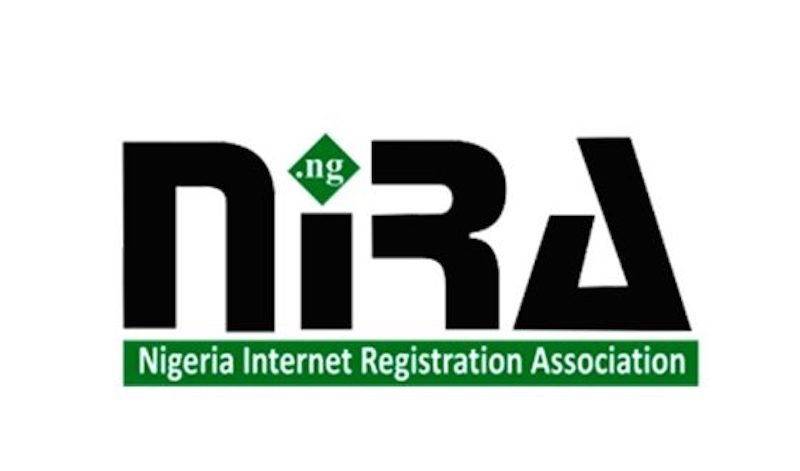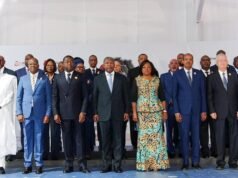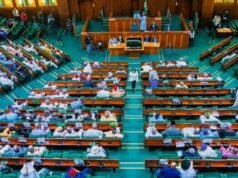The Nigeria Internet Registration Association (NiRA) is gearing up for its second major gathering, Tech Convergence 2.0, scheduled for October 14, 2025, in the nation’s capital. The conference aims to map out an ambitious pathway for Nigeria’s digital economy under the banner: “Building Nigeria’s Digital Future: The Internet as a Catalyst for Growth.”
The event promises to unite government officials, industry leaders, academia, civil society, and tech innovators to deliberate on the transformative power of the internet and how it can be leveraged for sustainable growth.
Table of Contents

Digital Economy as Nigeria’s Growth Engine
According to NiRA President Adesola Akinsanya, the event is not merely a conference, but a rallying point for Nigeria’s digital ecosystem. He emphasises that the internet is no longer just an enabler —it is becoming the engine for change. The digital sector’s contribution to Nigeria’s GDP is already over 18%, making it central to the national economic strategy.
Akinsanya underscores that for this engine to run smoothly, there must be stronger local internet infrastructure and secure digital identities. These are integral to what he calls “digital sovereignty”—the ability for Nigeria to manage its online presence, preserve trust in digital systems, and promote home-grown innovation.
Additionally, Seun Kehinde, Event Chairman, describes Tech Convergence 2.0 as a “stakeholder-centric design,” where exchange of ideas, partnerships, and solution-building will be central. He believes all hands—public and private—must work in concert to ensure that internet-driven growth is inclusive and sustainable.
What’s New in Tech Convergence 2.0
Building on the success of the inaugural meeting in Lagos in 2024, which drew over 400 participants and featured 25 speakers, the second edition will broaden its focus. Discussion will cover:
- Policy frameworks needed to regulate and promote digital technologies.
- Infrastructure development, especially around domain management and internet governance.
- Cybersecurity, including measures like WHOIS privacy redaction and DNSSEC (Domain Name System Security Extensions) to protect users and systems.
- Local content creation, artificial intelligence, and emerging tech trends.
NiRA also emphasises its ongoing investment in capacity building. Its .ng Academy has trained thousands in areas such as digital skills, domain entrepreneurship, and internet governance. The Association’s Chief Operating Officer, Seyi Onasanya, states that NiRA’s role goes far beyond merely managing Nigeria’s .ng domain—it is about laying foundations for a resilient internet system that supports innovators, start-ups, SMEs, public institutions, and more.

Participation, Hybrid Format & What It Means Going Forward
Tech Convergence 2.0 will be a hybrid event—both physical and virtual. While physical attendance will be limited due to space constraints, virtual participation will be more widely accessible through NiRA’s online platforms.
There will be keynote speeches from top government officials and international experts, panel discussions, and a startup showcase. These features are designed to foster collaboration and spotlight emerging talent in Nigeria’s tech space.
NiRA is urging early registrations, particularly for those who prefer or require physical participation, as slots are limited. The goal is to encourage broad involvement while maintaining the quality of interactions.
The Big Picture: Internet, Identity & Sovereignty
One of the compelling threads running through NiRA’s vision for Tech Convergence 2.0 is digital sovereignty. Internet domains, identity frameworks, and governance measures are seen as more than technical details—they are essential building blocks of trust, autonomy, and security in a highly connected world.
In Akinsanya’s words, domains are “symbols of ownership, trust, and sovereignty in the online space.” To him, ensuring Nigeria has control over its internet infrastructure isn’t optional—it’s central to preserving the country’s ability to shape its own digital future.
Moreover, there is an understanding that technology without local content, appropriate regulation, and inclusive frameworks risks exclusion and fragmentation. NiRA sees its role as integrating these elements—policy, infrastructure, education, local entrepreneurship—to build a digital future that works for all Nigerians.

Looking Ahead
Tech Convergence 2.0 will likely serve as a barometer for where Nigeria stands in its digital journey, especially after the first event in Lagos. The outcomes from Abuja—new policies, strengthened infrastructure measures, collaborative frameworks—could well shape how Nigeria harnesses the internet for growth, innovation, and global competitiveness.
If the event succeeds, Nigeria might see more resilient domain systems, better cybersecurity, expanded digital skills, and stronger public-private partnerships. Ultimately, what NiRA is proposing isn’t just a conference—it’s a blueprint for a digital transformation that leaves no one behind.
Join Our Social Media Channels:
WhatsApp: NaijaEyes
Facebook: NaijaEyes
Twitter: NaijaEyes
Instagram: NaijaEyes
TikTok: NaijaEyes





